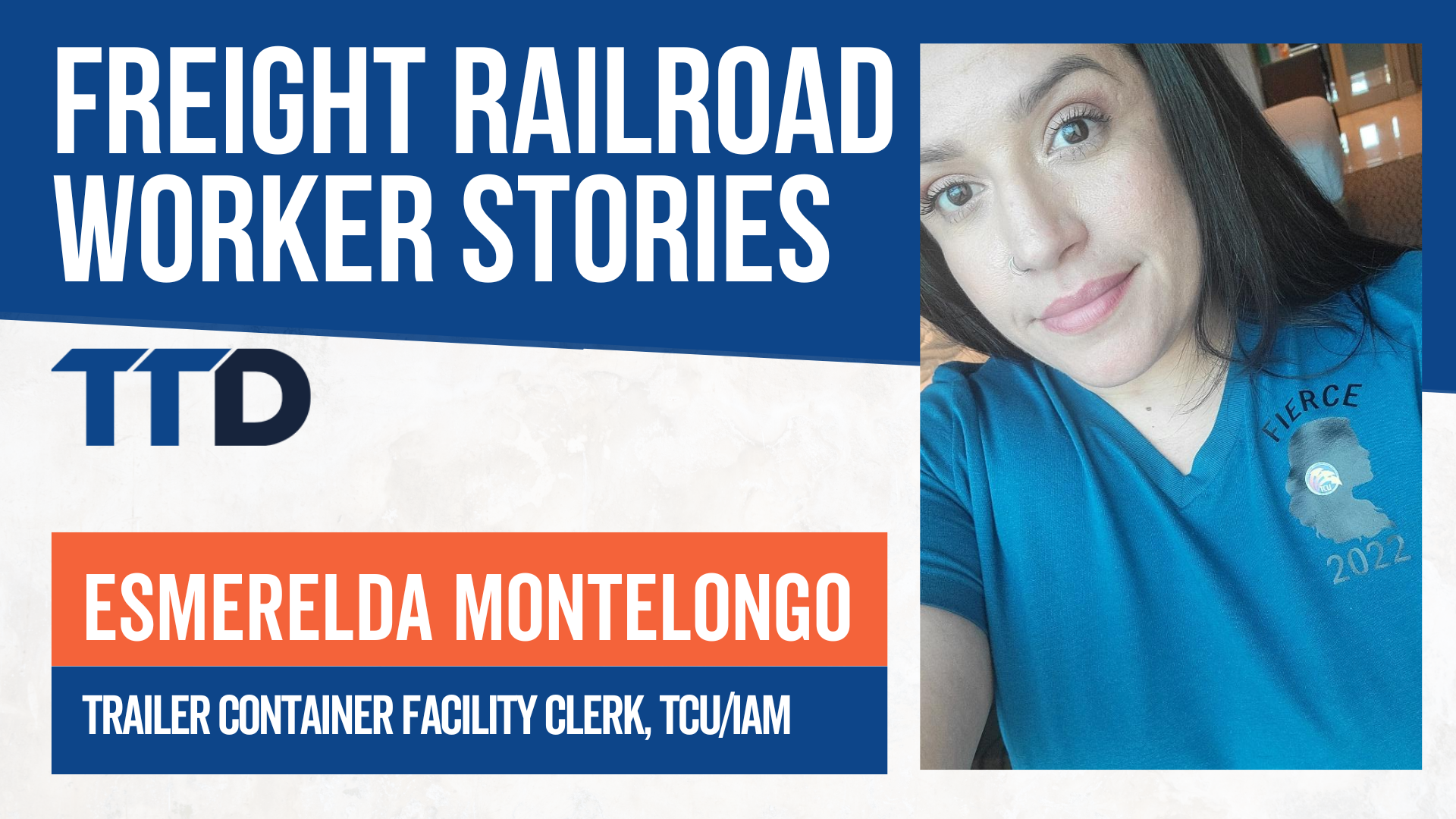
At a recent Virtual U.S. Freight Railroad Worker Town Hall, Transportation Trades Department President Greg Regan introduced a group of workers who explained the challenges they’ve faced in their three-year fight for a new contract with U.S. freight railroad companies:
Since 2015, seven major railroad companies made $146 billion in net profits off the backs of these workers. That’s the most money they’ve ever made in the history of railroading—even more than the Gilded Era railroad robber barons. During this same time period, the companies eliminated 45,000 jobs from the industry. Instead of recognizing the value of these workers, the companies have enacted massive job cuts and offered the remaining workers a net pay cut and worse health care benefits than they have now. This is unacceptable.
In the coming days, the AFL-CIO will share the stories of those workers. Check back here every day for more.
Today’s story comes from Esmerelda Montelongo, who works as a trailer container facility clerk for Union Pacific in Los Angeles. Esmerelda has worked in every rail yard that she oversees in the Los Angeles area, and she is a proud member of the Transportation Communications Union (TCU), an affiliate of the International Association of Machinists (IAM).
Montelongo said: “To be honest with you, I have no personal life. It feels that home is at work for me. And I just go on vacation for six hours when I am home. I literally work about 70 hours a week. And I work 16 hours almost every single day. I have three kids. I work so many hours that I have lost many special moments with them. They see me and they're like, ‘You know what, Mom, just quit. Because it's not fair for us.’
“I know that 15 years ago, I signed up to work for the railroad. And it was something awesome. I am a first-generation union worker. I thought I had made it. But now it seems that the railroad sees us as just a number. We are not human to them. They just use us until we can’t work anymore or until someone gets hurt.
“It just seems that the more you try to do, the more they take away from you. So it is not fair. It has a major impact on our kids. Because if the parents are not home, who's taking care of the kids? So it just doesn't affect us; it affects our children, also.”

